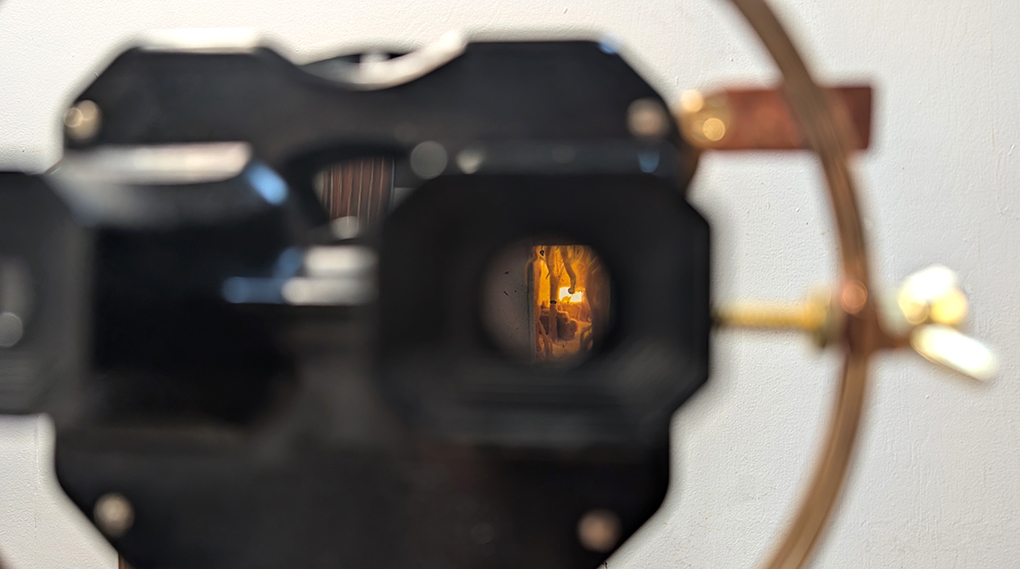Current Exhibition
Tia Bates
Through and From the Looking Apparatus
July 28 - September 5, 2025
Closing Reception: Friday, September 5, 5 - 7 p.m.

Tia Bates, It Follows You Anyway, 2024-25, beeswax, light, and found object sculpture on film images, found objects, copper, brass, concrete.
Through the looking apparatus, McIntosh Gallery becomes a vivarium where the substance of filmic light inhabits space—an environment where the viewer is invited to wander and discover cinematic curiosities. Emergent light grows and changes. The works feed on electric human proximity to become a form of life. In the surrounding darkness, light is drawn in and affects with the desire to capture and stick.
From the looking apparatus, projection lux—the amount of light hitting surface—scatters through all surrounding surfaces, including the viewer. Human skin is a threshold, the barrier between self and other. The translucent surface is breeched by light, allowing an external force to enter. While human touch cannot reach into the looking apparatus, lux from the looking apparatus can reach into and touch its viewer.
The looking apparatus is an object that has lived lives of looking, but it has been transformed: taxidermied into an invention of cinematic intervention. The looking apparatus is also a framework where light is waxing—revealing and expanding upon understandings of experience. Beeswax represents human skin through its translucency and its origin as a secreted material, a way to render skin as an object and to produce mimesis.
Referencing the cinematic experience as a sensorial interaction with light, Through and From the Looking Apparatus is both an installation of light and body and a habitat that cultivates human encounters with cinematic light.
Tia Bates is an MFA candidate in the Department of Visual Arts at Western University. Through and From the Looking Apparatus is her MFA Thesis Exhibition.
Graduate student exhibitions at McIntosh Gallery are presented in memory of King's College alumnus Gregory Franklin Child through the generous support of Western University Arts and Humanities alumni Paula Case Child and Timothy Child.


